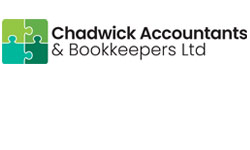What is the blended business mashup?
Old-school manufacturers used to create products to sell on to wholesalers, for them to sell to retailers, who sell to end-users. This created an environment where at least three businesses were involved in the production of a product that would eventually be bought by one customer. Every business would want its share of profits and cover costs. This made products more expensive and at times priced end-users out of the market, reducing demand for products.
The blended business mashup is where the manufacturer takes responsibilities for the selling of the products to retailers directly, bypassing wholesalers. Manufacturers can even choose to bypass retailers and sell directly to end-users. This essentially makes manufacturers omnichannel retailers.
In recent years, this trend has started to emerge with more customers now going directly to manufacturers. Some of the classic examples of this include Apple, Tesla and Nike. These three brands all own and operate branded physical stores where their products can be sold directly to customers.
The advantages of the blended business mashup
The manufacturing industry can benefit significantly from the blended business mashup. First of all, they can develop more revenue streams that can help during times of financial turmoil, and support improvements in business profits. This can also be a win-win scenario for customers and manufacturers. By cutting out the middleman, the final retail price can be cut, yet profit margins for the manufacturer can still be higher.
Even if manufacturers sell to retailers directly, they can offer the products at a lower cost than a wholesaler would, but receive more profit.
Manufacturers can also gain a better brand profile with customers. This can lead to more cross-selling of products and improve brand loyalty. With this will come increased intimacy with customers that can help with product development. Feedback from customers about product functionality, design, aesthetics can be collected and implemented in further batches.
It isn’t just physical products that manufacturers are blending as well. Some are offering services to customers related to their goods. For instance, GE is now offering asset management services. This helps maintain strong links to end-users after large equipment has been sold. It can also improve customer perception of the bought equipment as buyers don’t have to rely on third parties to repair or maintain equipment which can be more costly with inflated spare parts and labour costs.
Risks for manufacturers can also be reduced by selling direct to customers. Customers will pay for goods when ordering. In contrast, business-to-business contracts can stipulate payment after delivery of goods. This can cause late payments.
Research has shown that 27% of businesses are owed more than £20,000 and half of businesses can’t invest money in the business because of bad debt. If a wholesaler goes bust, then the bad debt can never be collected.
The disadvantages of the blended business mashup
Despite the many benefits of the blended business mashup for the manufacturing industry, there are some challenges. For one, workers with a new set of skills would need to be recruited. Manufacturers are staffed of excellent engineering workers who can help design and manufacture the products to sell to the market. However, manufacturers are often missing the knowledge and skills to take the product to a large market. When there is a shortage of qualified engineering workers in the UK, can manufacturers also hire other skill sets?
Online shopping is becoming a massive part of the shopping landscape. Yet many manufacturers don’t have a suitable e-commerce website that would rank well on Google or convince customers to buy. These tasks would need to be outsourced or specifically skilled individuals brought into the company to help. This can be costly.
It isn’t just website development though that manufacturers will struggle with. Logistical concerns could be a major headache. When dealing with one, or a few wholesalers, it is relatively easy to get production batches from the production facility to the buyer.
However, the more people you sell to, the more logistical knowledge that is required. It takes a lot longer to sell one hundred products to one hundred different places around the UK than it would do to send it to one company. While costs might not be much of an issue, thanks to bulk sending prices, the actual management could cause some manufacturers a real headache.
As you increase the number of deliveries that have to be made, you’re increasing the risk of a delivery arriving late, damaged or not at all. According to research, up to 69% of online deliveries can have issues such as damaged, lost or late items. Legally, it is the responsibility of the seller, not the courier, when this happens.
This would require customer support teams, that would stretch business finances and increase the amount of management needed to operate such omnichannel businesses.
Is blended business mashup useful for manufacturers?
The blended business mashup is a future trend that needs careful consideration for manufacturers. While there are some hurdles to overcome, these can be solved with hiring in the right talent to support business functions. Then, the blended business mashup will offer reassurances that the business’ future is secure, offer better profits and more engagement with end-users.




























